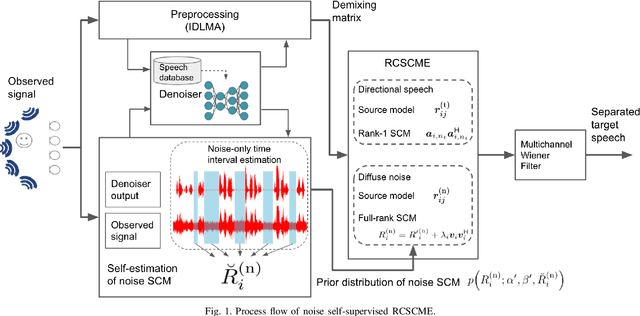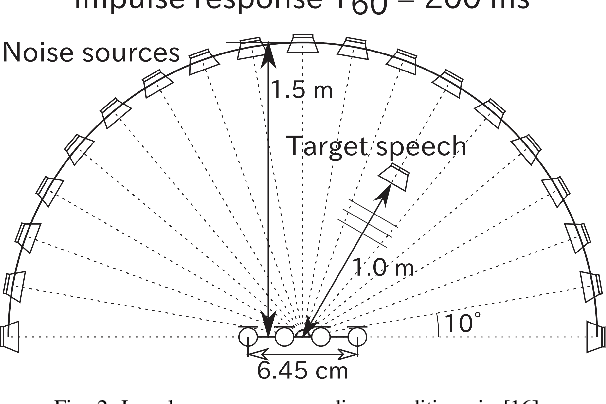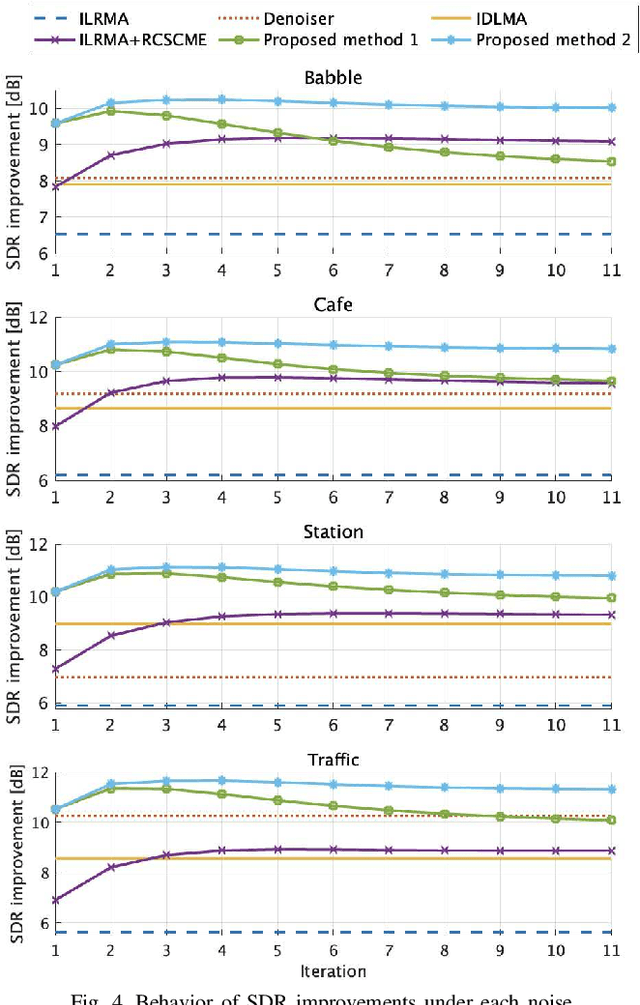Speech Enhancement by Noise Self-Supervised Rank-Constrained Spatial Covariance Matrix Estimation via Independent Deeply Learned Matrix Analysis
Paper and Code
Sep 10, 2021



Rank-constrained spatial covariance matrix estimation (RCSCME) is a method for the situation that the directional target speech and the diffuse noise are mixed. In conventional RCSCME, independent low-rank matrix analysis (ILRMA) is used as the preprocessing method. We propose RCSCME using independent deeply learned matrix analysis (IDLMA), which is a supervised extension of ILRMA. In this method, IDLMA requires deep neural networks (DNNs) to separate the target speech and the noise. We use Denoiser, which is a single-channel speech enhancement DNN, in IDLMA to estimate not only the target speech but also the noise. We also propose noise self-supervised RCSCME, in which we estimate the noise-only time intervals using the output of Denoiser and design the prior distribution of the noise spatial covariance matrix for RCSCME. We confirm that the proposed methods outperform the conventional methods under several noise conditions.
 Add to Chrome
Add to Chrome Add to Firefox
Add to Firefox Add to Edge
Add to Edge